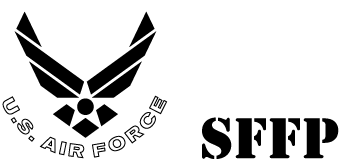As part of the Air Force Test Center, the 412th Test Wing located at Edwards AFB plans, conducts, analyzes, and reports on all flight and ground testing of aircraft, weapons systems, software and components as well as modeling and simulation for the USAF. Statistically defensible testing is an inherent component of developing and conducting quality tests and is infused throughout the testing and reporting process. Opportunities for current and future research and development of statistical methods include the following topics:
Develop experimental designs to optimize flight time and minimize constraint on randomization.
Use Bayesian methods to build predictive models and develop posterior distributions of complex, hierarchical flight test systems.
Research tail sampling to better understand inferences on percentiles including order and extreme value statistics.
Develop methods for modeling time series and spatial statistics related to flight tests.
Develop categorical data analysis methods to improve testing of human interaction with flight test systems. Such as survey analysis, testing of audio and communication systems, and human interface with flight systems.
Build supporting software in R and/or Python packages that would facilitate implementation of statistical methods into flight testing.


